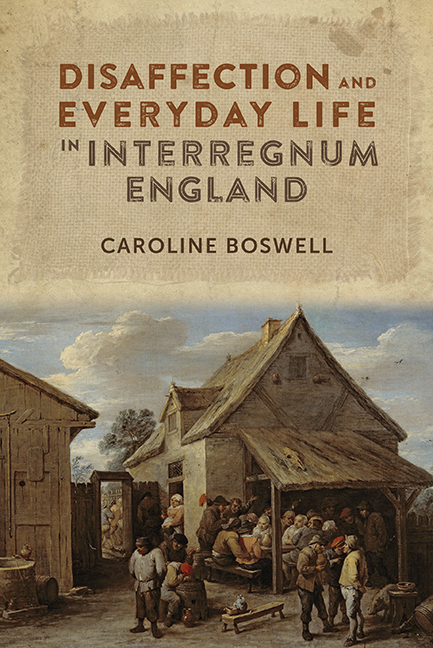Summary
During the summer of 1659, popular hostility toward sectaries culminated in violent assaults on Quakers and other radicals in London, Lancashire, Cheshire and Somerset. William Walke's raging assault at the Bradford excise house in May expressed his and others’ growing resentment of the failing excise administration and its vilified collectors during a period of declining trade. As tensions rose between the army and the Rump Parliament in August, a Presbyterian royalist uprising broke out in the north-west. But for Parliament's quick gathering of forces, London would have been embroiled in unrest as well. Though General Lambert's troops quickly suppressed Sir George Booth's royalist insurrection, the demands for a free Parliament began a fresh dialogue over the legitimacy of the Rump Parliament and the future of the nation.
Exploiting the unraveling events at home, Charles Stuart issued a proclamation to his “loving subjects” in England from Brussels in October 1659. Echoing popular sentiments, Charles promised that upon his return “A free and legal Parliament” would be “summoned”. In tune with a chorus of royalist tracts, Charles's proclamation attempted to equate the growing desire for a free Parliament with a push for his Restoration, suggesting that only he could ensure Parliament's “privilege” would be “maintained”. The proclamation also ridiculed the Rump, and Charles jeeringly referred to the body as “that Tail of a Parliament remaining”. Throughout the proclamation, Charles assured the exhausted nation that he would alleviate their burdens and eliminate the “confusion” which prevailed. The army would be disbanded after being dutifully paid with money procured in a “Parliamentary way”, and only the old garrisons would remain. Further, troublesome and illegal impositions such as the “Excise” and “Free-quartering” would be eliminated, while taxes would be raised in accordance with the “Magna Charta and the Petition of Right”. His promise to recompense the purchasers of Bishop, Dean and Chapter lands announced the return of the Church of England. Charles stated that Parliament would be endowed with the responsibility of “settling the Protestant Religion” in a manner that would protect “liberty for tender Consciences”. Charles expressed the hope that his illicit proclamation, printed on a broadside, would be distributed “freely” through the usual networks, noting that “many scurrilous and lying Pamphlets fly abroad without our control”. Thus began the first production of Charles's public claims to alleviate “all” of the people's “grievances”.
- Type
- Chapter
- Information
- Disaffection and Everyday Life in Interregnum England , pp. 237 - 244Publisher: Boydell & BrewerPrint publication year: 2017

